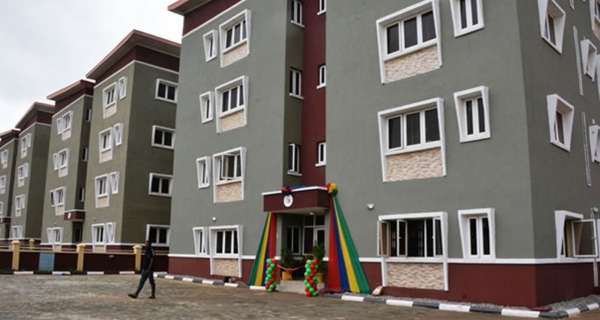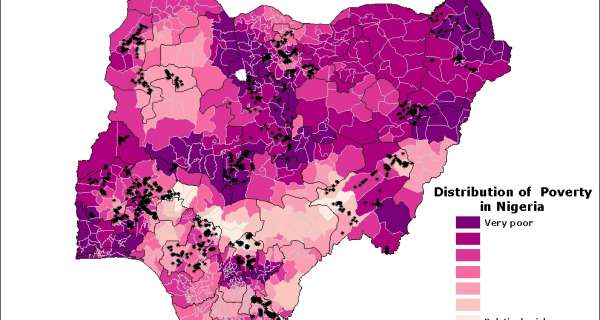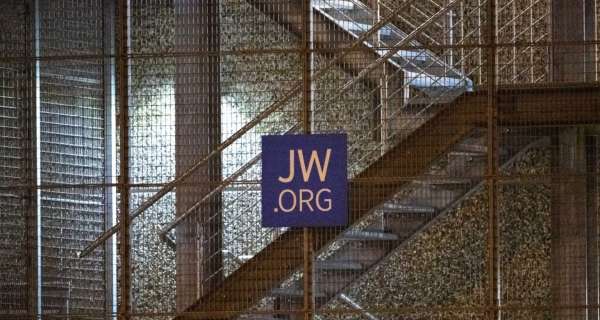Continued hike in interest rate by Central Bank of Nigeria (CBN) is having multiple effects on the mortgage market as it raises the cost of financing across all different segments of the real estate sector.
Apex bank’s Monetary Policy Committee (MPC) had in March, increased its benchmark-lending rate to 18 per cent in an aggressive push to contain the nation’s inflationary pressure. The Monetary Policy Rate (MPR) has been on the rise since April 2022, when it was 11.50 per cent. The rate impacts lending and inflation rates and consequently affects upward movement of prices of goods and services.
In January, the MPC raised its benchmark-lending rate from 16.5 per cent to 17.5 per cent in a sustained push to control inflation and ease pressure on the naira. Nigeria’s inflation rate rose for the second consecutive month in February to 21.91 per cent from 21.82 per cent in the previous month, according to the inflation report. As of April, headline inflation was 22.22 per cent.
CBN governor, Godwin Emefiele, said the committee would be moderate in its steps to reign in inflation because it is conscious of the fact that when the rate is over-tightened, it could have a negative impact on the banking sector, the financial ecosystem and the stability of the economy.
Currently, mortgage rates are hovering between 22 and 27 per cent per year, depending on the CBN. Before now, the rate was 20 to 24 per year. The latest development has overstretched operatives in the real estate sector, who are facing high cost of building materials and dwindling supply chains, as well as declining number of off-takers.
The mortgage market is highly driven by movement in interest rates, just as higher rates reduce demand for mortgage in the sector. For many individuals and businesses, an increase in interest rates is significantly impacting affordability and investments in the market.
Homeowners locked into fixed mortgage rates are temporarily exempted from higher mortgage rates until their mortgage terms expire and they need to renew their housing loans. However, mortgages with variable and adjustable rates are already experiencing a shift in the composition of their monthly payments toward their principal and interest rates.
Nigeria is bedevilled with low mortgage penetration as less than five per cent of existing houses are financed with mortgage loans owing to dearth of titled properties and difficulty in registration/transfer of title as it could take up to six months to two years. There are also too many processes, which are slow, cumbersome, unreliable and inefficient, as well as high cost of title registration/transfer, charged based on 15 per cent of property value and as high as 22 per cent in some states.
The size of mortgage market was N284 billion (2010), N348.1 billion (2012), N518.76 billion (2016) and practitioners are FMBN (through Mortgage Banks), Primary Mortgage Banks (34), mortgage brokers (5), commercial banks (about 21) and Nigeria Mortgage Refinancing Corporation (NMRC). Only about five per cent of the 13.7 million housing units in Nigeria are currently financed with mortgages.
With these challenges and increase in rates, prospective investors and homeowners seeking mortgage loans may shelve the idea, which will affect general transactions in the market. The mortgage industry generated 100,000 transactions between 1960 and 2009 and 181,519 transactions from 2010 to 2016, while contribution of mortgage finance to Nigeria’s Gross Domestic Product (GDP) is about one per cent.
The Guardian learnt that at this moment of high interest rates, only the National Housing Fund (NHF) being operated by the Federal Mortgage Bank of Nigeria (FMBN) might bring succour to Nigerians, especially subscribers to the fund. FMBN provides mortgage loans from the pool of funds available to the NHF at four per cent interest to accredited PMBs for on-lending at six per cent to NHF contributors over a maximum tenor of 30 years, which is secured by the mortgaged property.
The revised requirements for NHF, includes zero equity contribution for the provision of housing loans of up to N5 million and 10 per cent contribution for housing loans ranging from N5 to N15 million by contributors to the NHF. A contributor can access up to N15 million, lately changed to N50 million from the fund through an accredited PMI as a mortgage loan to build, buy, improve or renovate one’s own home after six months of continuous contributions.
Statistics by FMBN show that between 1992 and 2021 NHF total collection was N522, 492,568,467 and number of registered contributors was 5,466,092. Total loan approvals were N583,310,486,512, while N333,443,760,418 loan was disbursed for 33,774 housing units.
Close to three billion people, or about 40 per cent of the world’s population by 2030, will need to have housing and basic infrastructure services. This translates into completing 96,150 housing units per day, according to a report by the United Nations Human Settlements Programme (UN-Habitat).
The report shows that mortgage finance has been expanding during the last decade and is increasingly available in many countries, adding that new mortgage providers have emerged, including commercial financial institutions and mortgage companies. However, the report emphasises that only the middle and upper income households have access to such finance, while the poor are generally excluded.
Therefore, the report argues for the continuing and necessary contribution of the public sector towards financing shelter for the urban poor, as many households, even in developed countries, cannot afford homeownership or market rents. Complete houses available through mortgage finance are beyond the reach of the lower income groups, because they are unable to meet the deposit and income criteria set by conventional mortgage institutions.
Experts believe that the new mortgage rates will harm the real estate industry, as the sector is under-funded and hampered by bottlenecks in the financial system. They foresee high prices for real estate products and decline in off-plan sales.
Former President, Mortgage Banking Association of Nigeria (MBAN), Mr. Adeniyi Akinlusi, told The Guardian that the motive behind the CBN new interest rate was to tame inflation and demand for funds. He cited that the war between Russia and Ukraine has impacted the building materials supply chain, especially iron rods, as well as building manufacturing companies and associated industries.
Akinlusi, who is Director, Greenstem Advisory Limited, explained that as inflation is rising, mortgage rates would also be affected and people, who had been retrenched, whether in the information technology or financial sector, may have to renegotiate their terms.
The Chief Executive Officer, Eximia Realty Company Limited, a property development company, Hakeem Ogunniran, said the Disturbed by the low absorption capacity in the mortgage sector, Ogunniran said there was need to pay attention to mortgages as primary mortgage institutions are functioning as commercial banks, thus making it difficult to access mortgages with current high rates of mortgages and tenure.
He said the development would further compound the problems of the industry for developers and those who aspire to buy homes.
Ogunniran explained that with an increase in interest rate, the banks would mark up the rate from the existing 28 per cent. To him, this will affect construction financing and the entire real estate value chain. “Even the providers of inputs in the value chain will increase their prices. We are talking about an industry labouring under the yoke of severe challenges including source of funding,” he said.
He said funding for real estate projects requires a holistic approach by the government. He urged the government to create a special window such as long-term bonds and financial instruments or approach, as well as deploy pension funds.
President, Real Estate Developers Association of Nigeria (REDAN), Dr. Aliyu Wamakko, said the CBN’s new lending rate would push commercial bank interest rates to about 32 per cent. According to him, the increase would affect members of the association, who specialise in developing affordable housing in the country.
He said: “Without affordable fund, there is no affordable housing. The low-income earners have no room to get a house with high cost of funds. It will reduce the production of housing and increase costs. Only a low interest rate can create affordable housing and massive employment opportunities for Nigerians.”
Wamakko said the incoming government at Federal level must realise that affordable housing needs affordable finance, hence, create the window for such finance. Additionally, he said there should be synergy among agencies in the real estate sector to inculcate mortgage culture.
“There should be a special intervention fund for housing and an enabling environment for the private sector to thrive. The outgoing government was not able to produce the one million housing they promised. The government was not even able to complete the 3, 700 houses and that is why we felt the government had no business in the development of houses.
Basically, all over the world, housing is driven by the private sector. With an enabling environment, the private sector will strive and create opportunities for the government in terms of housing provision.
“There should be a reduction in the cost of interest rate, review of Land Use Act to reflect the present realities. Land acquisition is a herculean task and when governments across all levels budget for housing, it should be channelled through the private sector with single digit interest to produce affordable housing.
Chairman, REDAN, South West, Mr. Debo Adejana, said generally, the development has further increased the challenges of affordability and default rates. “Prices of properties have also increased in the markets. For new buyers, properties are becoming difficult to afford with the new rates and prices.
According to him, the major concerns among operators are what happens post subsidy. “We don’t know the modalities for the removal yet, as there would be price increases and gallop inflation. In post-COVID-19, it has been three years in a row of price reviews. It is not all about property developers, most people are adopting a wait and see attitude.
“ Most developers are not on their sites and others are delaying the start of their projects, while those who have started don’t want to fix prices for their houses,” he said.
Managing Partner, REFin Homes Limited, Kazeem Owolabi, said the new policy would lead to high cost of building in a sector where operatives have been clamouring for reduction in the cost of construction.
He observed that commercial banks have, following the announcement, started sending letters for review of rate to those who have borrowed.
Owolabi said: “The 18 per cent rate is the internal to the CBN, the external rate will hover around 28 to about 32 per cent to borrow money from the commercial by the time you pay a four per cent fee. Before it was 17.5 per cent and borrowing was at around 28 per cent at commercial banks.
“Developers may no longer have access to finance even if you have access, it will be too high for builders. There is going to be a multiplier effect; building materials will increase, developers will be affected, negotiation fees will increase and the cost per unit of housing will increase.
“When you borrow at 18 per cent, deposit interest will increase. Our housing deficit will increase because there will be fewer operatives and off-takers sales will reduce due to low earning power of the people. What the sector needs now is special funding, specifically designed for developers.”




































0 Comments